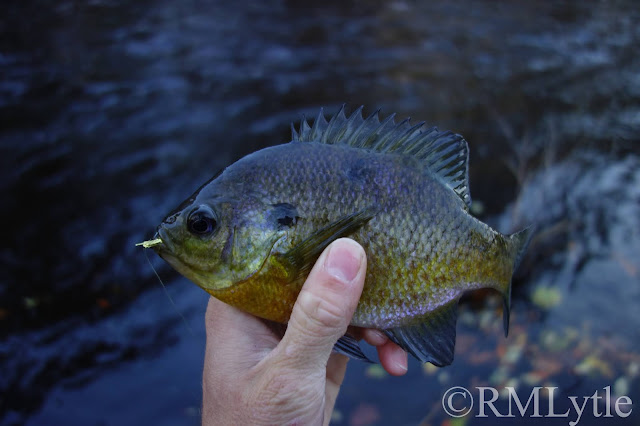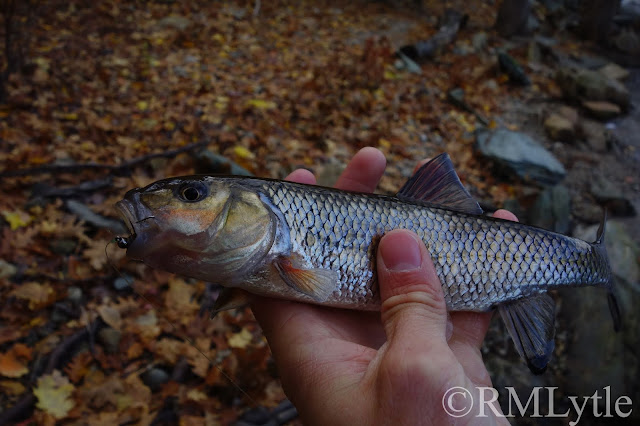As water temperatures plummet in November, fish are both on the move and slowing down. They are on the move because the need to be in very different water for the winter than they were just in all summer, and slowing down because as cold blooded animals their metabolism slows when it gets cold. This results in some interesting challenges for an angler trying to catch these fish. It can also create some great fishing, because the fish's feeding drive may be just a bit slower but they often pile up in staging areas and then in their wintering holes.
The fish species I'm really talking about here are fallfish, bass, sunfish, and perch. The late fall and early spring transitional period are, quite honestly, some of the best time windows I've found for loading up large numbers of these fish and often some trophy sized specimens. This year I was presented with the challenge of finding these fish in staging areas on new water, the same general area I've fished all summer in Rhode Island for carp. Because I'd been so focused on carp, I let a lot slide and missed chances to better figure out bites with some other species. Come November, catching would be more difficult simply because fish would be in fewer places and actively feeding less often.
I knew the sorts of spots that should be holding fish though from past experience on other watersheds. I used google maps and pinned every spot that looked like it had potential, from in-flowing creeks and canals to backwaters and large eddies. Some would clearly be difficult to access, so I started out with the one closest to home that I knew would be publicly accessible. I fished it first in low pressure during a big storm, with a simple "float n' fly" tactic. My leader was 8 feet long, tapered to 0x, with a small Thingamabobber and a micro streamer. Often, when water temperatures are falling, any retrieve is too much retrieve. Think effective ice fishing tactics: you want a fly to be basically in place, maybe with a little bit of jigging action, but barely moving horizontally at all.
I hit it right with the first spot, which was excellent. It wasn't crazy. The fish were neither huge nor especially numerous, but they were there and I could catch them; that's half the battle.
Until next time,












No comments:
Post a Comment